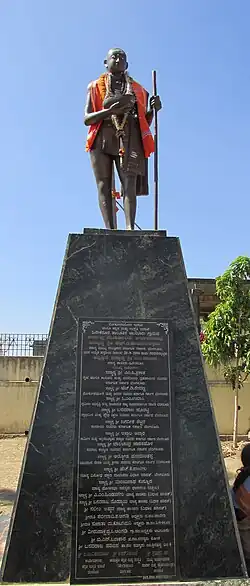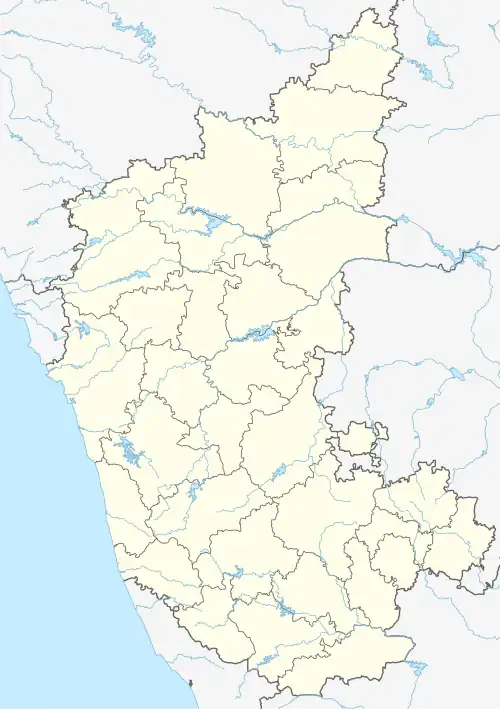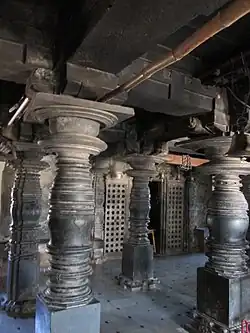Abalur
Abalur, Abalooru
Abaluru | |
|---|---|
village | |
 Statue of Sarvajna | |
 Abalur, Abalooru Location in Karnataka, India  Abalur, Abalooru Abalur, Abalooru (India) | |
| Coordinates: 14°31′05″N 75°24′22″E / 14.518°N 75.40608°E | |
| Country | |
| State | Karnataka |
| District | Haveri |
| Talukas | Hirekerur |
| Government | |
| • Body | Village Panchayat |
| Languages | |
| • Official | Kannada |
| Time zone | UTC+5:30 (IST) |
| Nearest city | Hirekerur |
| Lok Sabha constituency | Haveri |
| Vidhan Sabha constituency | Hirekerur |
| Civic agency | Village Panchayat |

Abalur is a village in the southern state of Karnataka, India.[1][2] It is located in the Hirekerur taluk of Haveri district in Karnataka. Abalur is the birthplace of Sarvajña, considered most prolific poet in Kannada literature and famous for his three-line poems called Thripadigalu.
Abalur has a very famous Basavanna Temple (Nandi) of pre modern times and worshipped by many villages in and around. The place is recognized by Karnataka Tourism. During the months of Feb/Mar the village folks arrange a jathre Mela or festival for the village deity, where people from neighboring villages visit the temple and offer prayers.
It was once known as a famous centre of Jainism.[3] Details collected from Harihara's biography and poet Basava Purana mentions the dispute between Jainas and a proponent of Shaivism named Ekandata Ramaiah at Abalur in the second half of the twelfth century.[4] Following this the Jaina images at Abalur were destroyed. A sculpture depicting the breaking up of the Jina image can be seen at the Someshwara temple at Abalur.[5]
See also
References
- ^ Registrar General & Census Commissioner, India. "Census of India : List of Villages Alphabetical Order > Karnataka". Retrieved 18 December 2008. , Census Village code= 863300
- ^ "Yahoo! maps India". Archived from the original on 18 December 2008. Retrieved 17 April 2009. Abalur, Haveri, Karnataka
- ^ "ಮುಖಪುಟ - ಕರ್ನಾಟಕ ಗ್ಯಾಸೆಟಿಯರ್ ಇಲಾಖೆ". gazetteer.karnataka.gov.in. Retrieved 19 May 2021.
- ^ Ishwaran, K. (2019). Speaking of Basava: Lingayat Religion and Culture in South Asia. ROUTLEDGE. ISBN 9780813383897. OCLC 23970843.
- ^ "Chapter 2017 Places of Interest". gazetteer.karnataka.gov.in. Retrieved 19 May 2021.